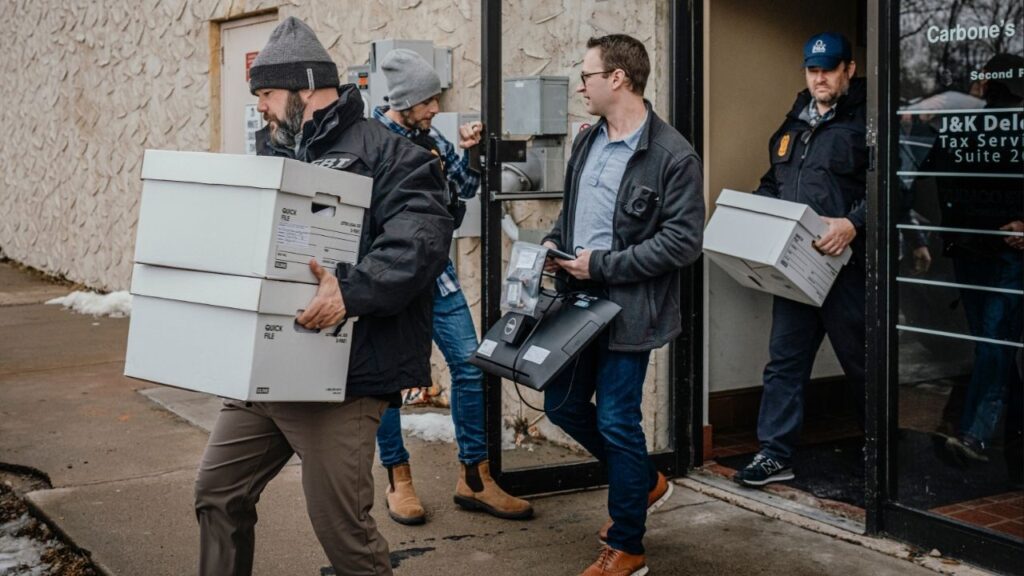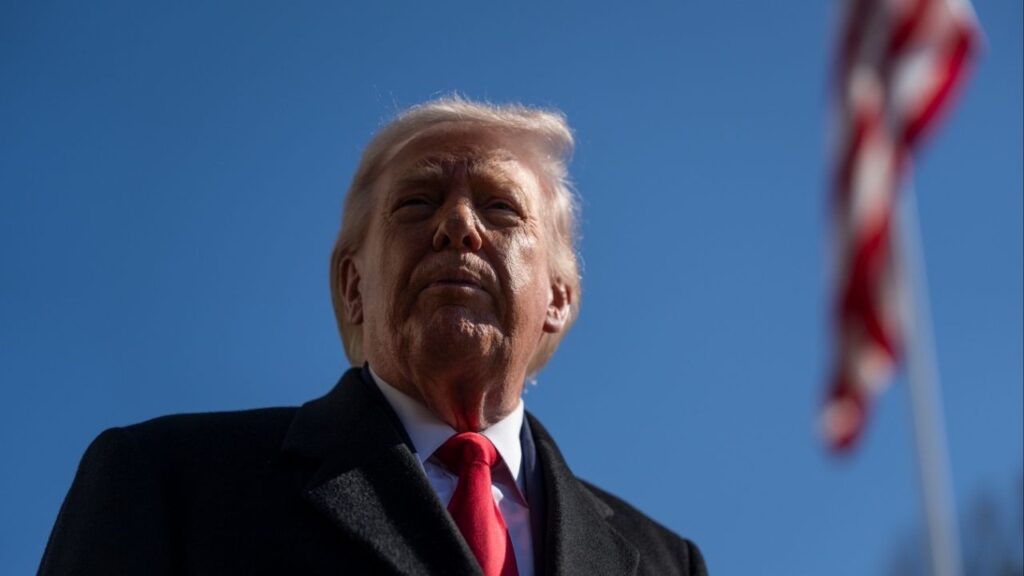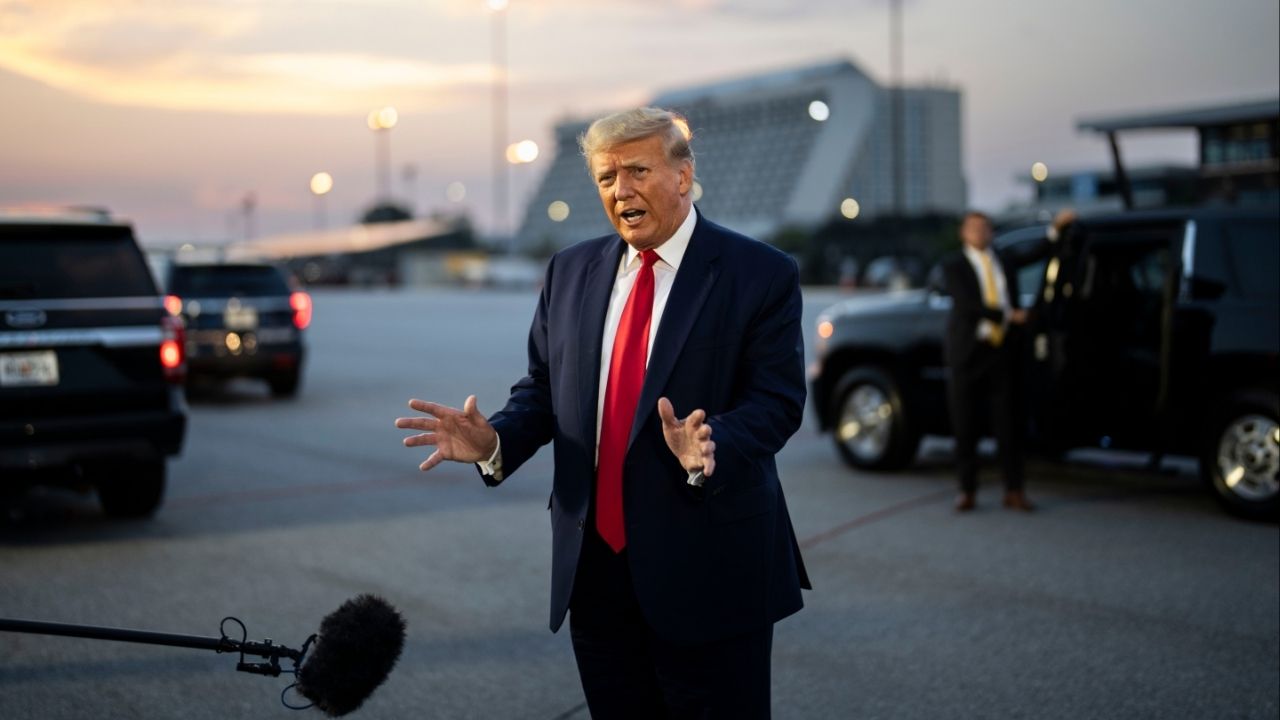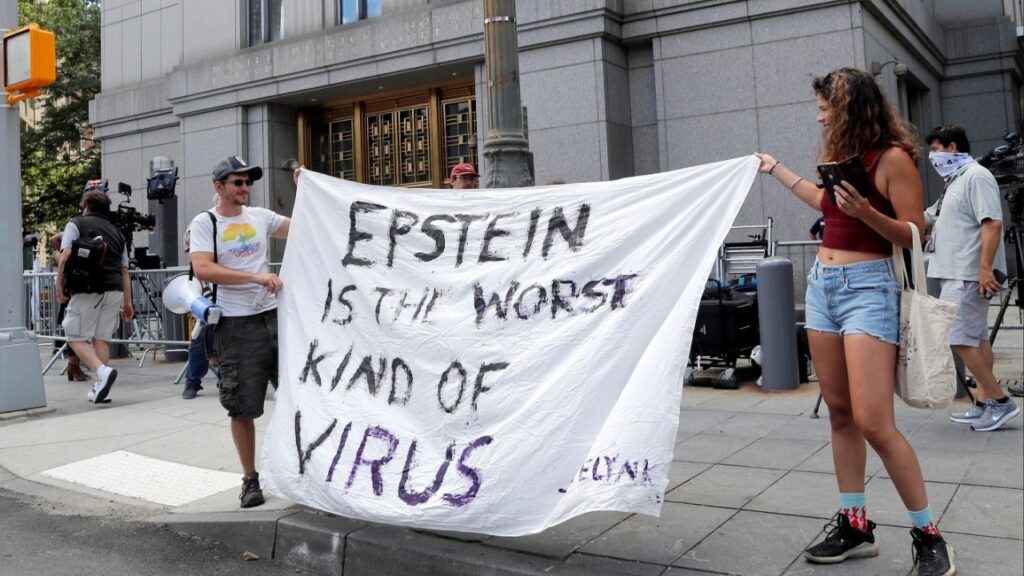Former President Donald Trump speaks to reporters at the airport in Atlanta after his booking at the Fulton County Jail in Georgia, Aug. 24, 2023. Georgia’s criminal election interference case against Trump and a number of his allies entered a new phase on Nov. 14, 2025, as the executive director of the state’s prosecutor council appointed himself to take over the case, replacing Fani T. Willis, who is now disqualified from pursuing it. (Doug Mills/The New York Times)

- Georgia prosecutor Pete Skandalakis appoints himself to oversee Trump election interference case after Fani Willis’ disqualification.
- Skandalakis gains full prosecutorial discretion, including trial, plea deals, or dismissal, emphasizing public interest and transparency.
- Trump faces state election charges in Georgia, part of broader multistate cases, while other federal and state cases concluded.
Share
|
Getting your Trinity Audio player ready...
|
The Georgia criminal election interference case against President Donald Trump and a number of his allies entered a new phase Friday, as the executive director of the state’s prosecutor council appointed himself to take over the case, replacing Fani Willis, the Fulton County district attorney who was disqualified from pursuing it.
What the change means for the future of the case was unclear. The new prosecutor, Pete Skandalakis, is a veteran Georgia lawyer who began his career as a Democrat and later switched to the Republican Party. As executive director of the nonpartisan Prosecuting Attorneys’ Council of Georgia, Skandalakis had been tasked by law with finding a new prosecutor to take on the complex Trump case after Willis was removed by the Georgia appellate court.
In a filing in Fulton County Superior Court on Friday, Skandalakis said he reached out to “several prosecutors” in the state, but that each of them declined the appointment. So he said he decided to take on the case himself.
In a statement, Skandalakis said that while it would have “been simple” to tell the court he could not find a replacement for Willis — a move that would have likely led to its prompt dismissal — he decided that would not be “the right course of action.”
“The public has a legitimate interest in the outcome of this case,” Skandalakis said. “Accordingly, it is important that someone make an informed and transparent determination about how best to proceed.”
As the new prosecutor, Skandalakis now has the authority to steer the case in a number of directions, including taking it to trial as it is, striking plea deals, dropping some charges, or striking the case altogether.
“He would have the same prosecutorial discretion afforded to any sitting prosecutor,” said Anthony Michael Kreis, a law professor at Georgia State University. “He does have the obligation under Georgia law to review every individual case for which probable cause for prosecution exists, and to make a determination based on an analysis of the facts whether to proceed. And he has an ethical obligation to not pursue charges where he doesn’t believe he could secure a conviction.”
In a statement Friday morning, Steve Sadow, Trump’s lead defense lawyer in Georgia, said, “This politically charged prosecution has to come to an end. We remain confident that a fair and impartial review will lead to a dismissal of the case against President Trump.”
Norm Eisen, a critic of Trump and executive chair of the Democracy Defenders Fund, said in an interview that Skandalakis’ decision to appoint himself was “a welcome development for our democracy.
“If we don’t have accountability for what happened in the aftermath of the 2020 election,” Eisen said, “we’re at risk of it happening again.”
The Georgia criminal charges leveled against the president and an eclectic group of his supporters — including Rudy Giuliani, the former mayor of New York and lawyer for Trump, and Trevian Kutti, a onetime publicist for Kanye West — lie beyond the federal pardon power of presidents.
The case had been moving toward trial when late last year Willis was disqualified from prosecuting it. Months earlier, defense lawyers exposed that Willis and Nathan Wade, an outside lawyer whom she hired to manage the prosecution, had been romantic partners. The defense accused Willis of “self-dealing” by going on vacations with Wade that he had paid for, at least in part.
Willis fought her removal, but in September, the Georgia Supreme Court declined to intervene, ending the appeals process.
The indictment, handed up in August 2023, accused Trump and 18 of his allies of organizing a criminal racketeering enterprise to reverse the 2020 election results in the state, which Trump narrowly lost that year. Part of the basis for the indictment was a phone call Trump made in January 2021 to Brad Raffensperger, Georgia’s Republican secretary of state. During the call, Trump pressured Raffensperger to “find” enough votes to overturn the election results.
The call was part of a multistate strategy by the Trump campaign to keep Trump in power after he lost the 2020 election, resulting in criminal charges in five states. Trump faces state election interference charges only in Georgia, but some of those involved in efforts to keep him in office were charged in other states as well.
A Michigan case against fake electors acting on his behalf was dismissed this year. Similar cases in Nevada and Arizona are mired in legal challenges.
A federal criminal elections case against him, parallel to the Georgia case, was dropped after he won the 2024 election, and a separate federal criminal case related to Trump’s handling of classified documents when he left office in 2021 was dismissed last year.
In a fourth criminal case against Trump, related to payments to cover up a sex scandal during the 2016 presidential campaign, a jury in New York found him guilty on 34 felony counts last year. The president has appealed that conviction.
—
This article originally appeared in The New York Times.
By Richard Fausset and Danny Hakim/Doug Millssv
c. 2025 The New York Times Company
RELATED TOPICS:
Categories

School Bus Involved in Fresno Crash, No Student Injuries

Minnesota Sues Federal Government Over Withheld Medicaid Funds

Fresno Police Arrest 19 in DUI Enforcement Operation

















